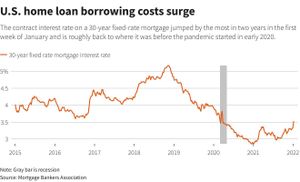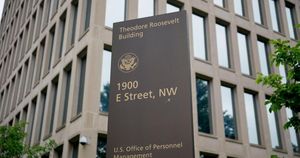Germany's political stage is witnessing seismic shifts as the far-right Alternative for Germany (AfD) cements its ties with controversial global figures like former President Donald Trump and billionaire entrepreneur Elon Musk. This collaboration reflects not only the AfD's rising popularity, polling around 21 percent, but also its intent to reshape the German political narrative as national elections approach.
At a campaign rally held recently in Halle, eastern Germany, AfD politician Maximilian Krah passionately rallied supporters by presenting them with stark choices. “You have to make a decision. Do you want to have the party of [Chancellor] Olaf Scholz and all those eunuchs? Or are you on our side, with Elon Musk and Donald Trump? Which side has more sex appeal?” Krah’s remarks underlined the party’s strategy of embracing high-profile backers.
The event took an unexpected turn when Musk made a surprise video appearance, exhilarating the crowd of 4,000. The tech billionaire's engagement appears to strengthen the AfD’s claims of solidarity with figures promoting nationalist rhetoric. Alice Weidel, the AfD leader, openly expressed her delight at Trump’s political fortunes, wishing him and Musk “all the best blessings for their next tenure,” signifying the AfD's aspiration for similar success.
While the AfD's admiration for Trump is well-documented, Musk's involvement is more recent—one marked by polarizing statements particularly around German national identity. During his Halle appearance, Musk referred to the AfD as Germany’s “best hope,” articulately advocating for pride in “German culture and values” against the tide of multiculturalism. Such statements resonate with AfD supporters and reinforce the party's long-standing narrative to reclaim Germany’s identity.
These sentiments echoed Musk's earlier remarks during the 80th anniversary of the liberation of Auschwitz, where he controversially criticized the focus on Germany's past guilt, pushing for liberation from historical atonement practices. Chancellor Olaf Scholz condemned Musk’s comments as “disgusting,” exemplifying the deep chasm between mainstream political leaders and the rising far-right agenda.
Despite its substantial polling support, the AfD faces significant hurdles to political power. Historically, Germany’s mainstream parties have upheld what is termed a “firewall” against the AfD, refusing to engage with them or support their legislation. Yet, this barrier seems to be shifting as mainstream agendas begin to reflect the issues championed by the AfD. Indeed, the recent Bundestag debate surrounding the controversial “influx limitation act” led by Friedrich Merz of the center-right Christian Democratic Union (CDU) indicates how mainstream political discourse is increasingly adopting the AfD's framework.
Matthias Quent, an extremism researcher, notes, “The AfD’s rise may be more accurately attributed to the weakness of the government and how social debates are focusing on the hot-button AfD issues, such as immigration.” This sentiment captures the dual challenge facing mainstream parties: they must reckon with public sentiment shifting toward the far-right without endorsing its more extreme elements.
Across Europe, the trend has broader ramifications. Leaders such as Hungary's Viktor Orban, Slovakia's Robert Fico, and Italy's Giorgia Meloni openly laud Trump's brand of politics, hence normalizing far-right ideologies. This presents significant concerns for centrists and progressives who view these developments as troubling norms gaining traction within the European political sphere.
Despite its rising popularity, the AfD cannot escape its controversial reputation. The party is under the scrutiny of German intelligence agencies, which have flagged some of its activities as potentially extremist. This vigilance hampers the AfD's ability to form coalitions and effectively operate within Germany's political framework.
Nevertheless, by embracing the likes of Trump and Musk, the AfD seeks to redefine its image from fringe extremist to legitimate political player, capitalizing on high-profile endorsements as part of this global right-wing alliance. This strategy is geared toward mobilizing support for its nationalist and anti-immigration agenda as Germany braces for its national elections.
The AfD's future, particularly its potential for gaining real political power, remains uncertain. Still, one thing is clear: the party is no longer just another far-right entity. It is tapping directly and publicly, albeit controversially, from global sources of influence to shape its place and role within German politics.



